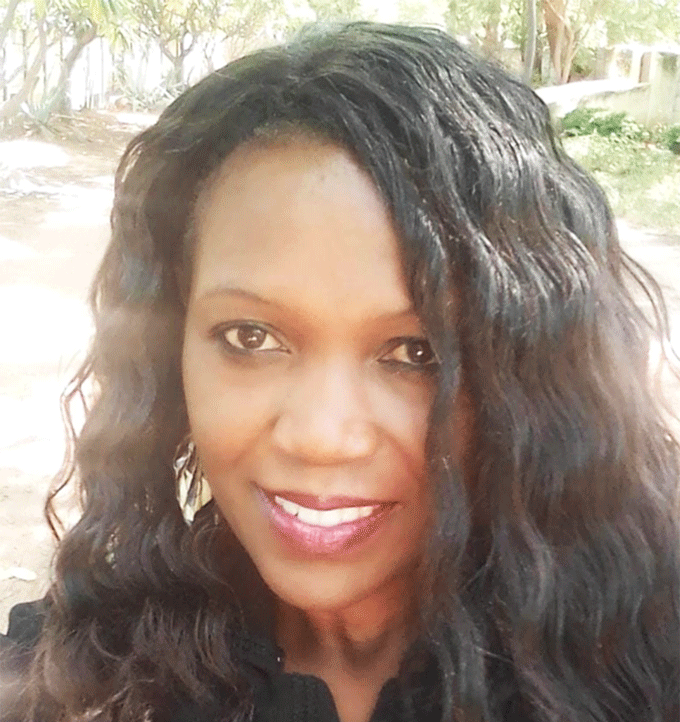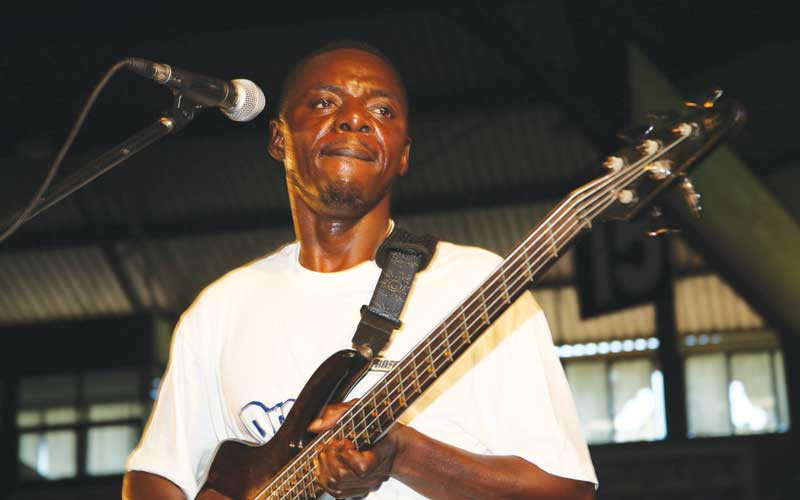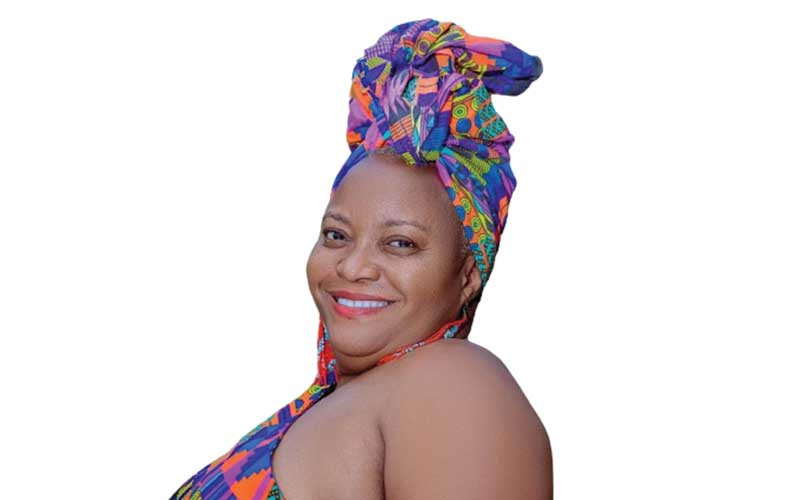
BY TENDAI SAUTA
LOCAL actor Angeline Dimingo’s passion for film and television began at an early age through the support of her mother who later passed on when she was 10 years.
Dimingo said she loved television and radio such that she would know the daily programme line-up by head and could distinctly relate the programmes she watched to friends and her mother.
She said her mother was very supportive in everything that enabled her to balance the love for TV and schoolwork.
While in high school (Queen Elizabeth Girls High) in Harare, Dimingo teamed up with her friends and scripted a protest movie on racial discrimination that was experienced by black children at their school.
The script brought them to close ties with journalists and broadcasters from where Dimingo got further inspiration to learn and receive some mentorship on good scripting.
Dimingo shared her journey with NewsDay Weekender early this week.
Scripting for a protest movie while at school
- Chamisa under fire over US$120K donation
- Mavhunga puts DeMbare into Chibuku quarterfinals
- Pension funds bet on Cabora Bassa oilfields
- Councils defy govt fire tender directive
Keep Reading
“I partnered with my friends at Queen Elizabeth Girls High, Anna Miti, Sandra Makande and Nyarai Nyamuzuwe from Morgan High School for a move that had been motivated by a teenage film we had watched on ZBC-TV that had something to do with Kukamanga camp.
“We started working on a script in protest against racism at school. We then made frequent visits to ZBC and had several meetings with Aaron Chiundura Moyo who introduced us to the late producers Ramious Msasa and Arnold Shoko.
“These people were such a blessing. Msasa was helping us with the script, but unfortunately he passed on before we completed it, so we reached a dead end. Shoko continued accommodating us at the studios allowing us to learn as they were doing their drama productions.
“The late Remington Mbeya would also invite us to observe the Mutinhimira Wemimhanzi/ Ezomgido recordings and would give me the honours of being a guest presenter to introduce a song or two on the programme.
Learning to use a camera
“I learnt to use the camera through observing and asking ZBC cameramen questions after the recordings as we were not allowed to touch the equipment. I was, however, satisfied with just being there by that time.

Getting connected to the film practitioners
“It was during my high school days that I met the team from Vision Valley Film Institute, Harry and Josh Nyapimbi at the Zimbabwe International Book Fair, and got information about the bi-annual Southern African Film Festival (SAFF).
“I pushed my way to be accepted and accredited. I made sure I attended all workshops at SAFF 98 and SAFF 2000, respectively. Two key contacts I got from SAFF that set the pace for me as a filmmaker I am today were the late Godwin Mawuru (of the Neria fame) and Tsitsi Dangarembgwa.
“I also met Pedro Pimenta of the Unesco Film and Video Training Programme. It was also at SAFF that I was introduced to the Women Filmmakers of Zimbabwe. This led to a series of mentoring sessions from the likes of Ben Mahaka, Marian Kunonga and Nakai Matema.
Working under Godwin Mawuru’s arms
“The late Godwin Mawuru first took me in as a volunteer cameraperson for the talkshow — This Is Life. In those days, one would hardly find a lady behind the camera, so I was really excited about it and did my best to impress.
“After two recordings, I was put on the payroll as a cameraperson for the vox pops and as a production assistant for the talkshow. About two weeks later, a studio camera was organised for me and I officially became a cameraperson for the live recordings.

“The engineers Trevor Tachiona, Benias Chitanda, Godwin Makore, Tendai Mushapaidze and video tape recorder operator Harlington Mukwena were helpful in guiding me through and giving me pointers. I became good at my work as my camera was usually the one with the on-air light flashing.
“At that time, Godwin was doing the soap Studio 263 as well, so he asked me to join them as a continuity person and an occasional cameraperson when they were using more than three cameras.
“It was quite hectic working at Studio 263. It was on air three times a week, then all of a sudden they called for five days per week screening. We gradually ran out of our programme’s stock and had to shoot on the run.
“Things got messy at some point and we had to juggle around with the available footage to come up with an episode. At times, we had problems with actors not turning up for work and the unavailability of locations among other issues, but we still had to come up with a programme.
“It was intense work for everyone and particularly the continuity persons had to be extremely sharp. So, with Studio 263, we had recordings for six days a week and this was life once a week as I was occupied throughout the week.
“I was later promoted to become the second assistant director and later became the first assistant director for the soap (Studio 263). It was not an easy task at all, but I pulled through. In fact, I was actually the longest serving assistant director for the show.
Challenges with the Studio 263 cast
“At some point, I had a hard time making things work. Some of the cast members had grown wings and became difficult to manage.
“They would miss shoots, lose costumes with continuity, give me false information on where to pick them among other things so it was a challenge. At the end of the day, it was their word against mine and as the assistant director, I was answerable to all such that I was then demoted to the wardrobe department.
“I took my move to the wardrobe department as a learning opportunity and indeed it was worth it. I learnt how to do wardrobe from one of the best, the late Charmaine Mangwende, who was popularly known as Mai Huni in the soap.
“I later resigned from Studio 263 and reconnected with the film community.
Acting role
“My major acting role was for the Soul City project, Chipo’s Promise where I acted as Mrs Mudimu. I then acted in I Want A Wedding Dress as Mai Kundi and have featured in the series Manje So and The World We Live In.
Joining Women Filmmakers of Zimbabwe
“Through Women Filmmakers of Zimbabwe and the mentorship of Tsitsi Dangarembgwa, I went through several training workshops and participated in a number of productions.
“Dangarembgwa believed in me as a person with potential and took me to various platforms and meetings that helped develop my personality as a filmmaker and my intellectual capacity to a great extent.”
Stint at ZIFFT
“My story with Zimbabwe International Film Festival Trust (ZIFFT) dates back to a long time ago. Through the short film training programme, I managed to take up a script development training programme. I wrote my first script, Marrying the Devil and directed it as well.”
Other productions
“Over the years I have also worked with a number of filmmakers from whom I have also learnt a lot. Tawanda Gunda and Ezekiel Tswatswa have also been very helpful and supportive throughout my journey.
“I worked as the continuity person and have been an assistant director for many films and series such as Manje So, I Want a Wedding Dress, Chipo’s Promise, Lobola, Nyaminyami, Battle of Sinoia and The Christening, among other productions.
Industry-related challenges
“There are many challenges, among them content being distributed without my consent. At some point, I came across one of my films being screened on African free channels. And had to follow leads and I ended up getting a paltry US$20 for the various screenings.
“Sometimes because you will be operating with limited resources, following it up legally becomes a challenge and you have no option than to let it pass. The best solution to that challenge for now is to have contracts with everyone involved in the production so that the chances of unapproved distribution become less.
“Content distribution channels are vague in a way. Local distributors who specialise in distribution are still hard to pay.
“Am just learning the ropes and trying to do more research on the available adequately paying distribution channels where I can also break even and make a profit out of a production.
Achievements
“I got a nomination for best social contribution in the Ndichirimupenyu award for the young filmmakers project. Also, the first short film I wrote and directed, Marrying the Devil was screened at six international film festivals in Kenya, Cameroon, Zambia, South Africa and Zimbabwe.
“I received a runner-up prize for my screenplay script for Venom of A Bitter Woman from a collaboration between the University of Bedfordshire and the Zimbabwe International Film Festival Trust.”
Impartation of skills to others
“I have also taken time to share my skills and ideas with others. I have trained other people to do continuity on set, for example Josephine at the production of the Patsime Trust project titled Suburb D series.
“I also initiated a young filmmaker’s club in Chitungwiza in 2009, trained the kids on the basics and came up with a production, When Hunger Strikes that was screened at a festival in Iran.
“I have also volunteered my services to fellow filmmakers on their productions. To that I acknowledge and appreciate people like Joe Njagu who came through at his own cost with his equipment to support the Christian film bootcamp that we initiated with Marian Kunonga and produced two short films and trained 14 people.”
Future plans
“I am working on a project titled The Manicaland Trilogy of Gender Stories that will bring to life the award-winning screenplay script Rage, by Tanaka Ranganawa, my screenplay Venom of a Bitter Woman and the Wife of Usher by Amanda Ranganawa. It is a collaboration between Tariro Films, Mclara Multimedia and Igi Matope’s Pikicha Afrika.”
Parting shot
“Zimbabwe has great potential to shake the world through film and television productions. We have the talent, skills and even the equipment at our disposal. Let us collaborate as artists, the corporate world should also support professional filmmaking. Artists should keep the passion and continue building our arts community into becoming an industry.”
Follow us on Twitter
@NewsDayZimbabwe











